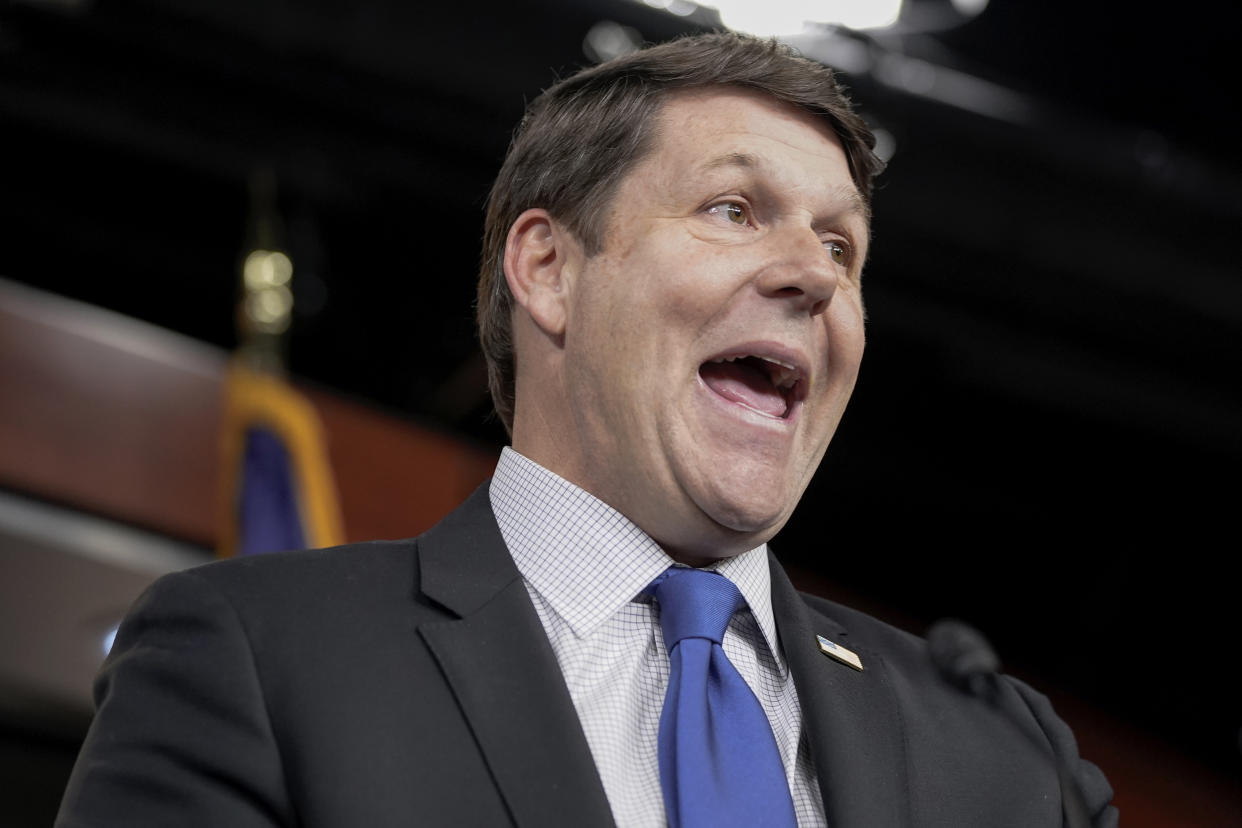After facing multiple delays and mounting frustrations within the Republican ranks, Speaker Mike Johnson has introduced a revised budget blueprint that aims to set new spending cut thresholds. This move effectively sidelines House Budget Committee Chair Jodey Arrington, highlighting deep divisions within the party.
A New Spending Cut Proposal
Johnson’s latest proposal seeks to establish spending cuts between $1.25 trillion and $1.5 trillion—an increase from his initial estimates but still falling short of the $2.5 trillion demanded by some conservative factions. This new plan is a crucial step for Republicans aiming to pass a sweeping domestic policy package via budget reconciliation.
However, securing Republican unity remains a challenge, as the GOP must agree on a budget framework before advancing the bill. The House leadership has already missed an informal deadline to push the blueprint through committee, and the Senate is poised to introduce a competing budget plan that Johnson strongly opposes.
Impact on Tax Cuts
One of the most contentious aspects of Johnson’s new plan is its potential impact on tax legislation. Initially, Republican leaders had agreed to allocate $4.7 trillion for crafting tax cuts, but that figure is now expected to be lowered. This reduction has sparked concerns among Republicans eager to incorporate former President Donald Trump’s tax priorities into the bill.
Internal GOP Tensions
Monday night’s discussions revealed fractures within the GOP leadership. Johnson and other senior Republicans, including House Majority Leader Steve Scalise, pressed Arrington on whether he had secured backing from conservative members of the Budget Committee. Arrington’s lack of clarity has raised concerns that he may not fully support the leadership’s plan, potentially stirring opposition during upcoming meetings.
Arrington has reportedly aligned with Rep. Chip Roy in pushing back against the leadership’s tax proposals. Their internal disagreements with Ways and Means Chair Jason Smith have added another layer of complexity to the already tense negotiations.
Trump’s Stance on Medicaid Cuts
Another key sticking point in the budget discussions is Medicaid reform. While some Republican leaders initially agreed to seek $2 trillion in spending cuts, Trump’s reluctance to endorse significant Medicaid reductions has led to further delays. In private meetings, GOP leaders acknowledged that Trump’s opposition to drastic Medicaid cuts could result in significant revisions to the budget plan.
Many House Republicans in both competitive and safe districts are also wary of supporting large-scale Medicaid cuts, fearing political backlash. Trump’s team has made it clear that they do not want healthcare reforms to dominate the budget bill’s narrative, further complicating Republican efforts to finalize their proposal.
Debt Limit Considerations
In response to Trump’s influence, Johnson has been exploring the possibility of incorporating a debt limit increase into the reconciliation process. However, skepticism remains within GOP leadership regarding the feasibility of advancing such a measure along party lines.
What’s Next?
With no clear consensus on spending reductions, tax cuts, or Medicaid reforms, it remains uncertain whether Johnson’s budget plan will pass through the House Budget Committee this week. The delay has led to speculation that Republican leaders may consider canceling the upcoming House recess to expedite progress. However, no official decision has been made on that front.
FAQs
What are the key elements of Speaker Mike Johnson’s budget plan?
The plan proposes spending cuts between $1.25 trillion and $1.5 trillion, seeks to advance a tax package, and addresses concerns about Medicaid reforms and the debt limit.
Why is there opposition to the plan within the Republican Party?
Some conservatives believe the spending cuts should be higher, while others worry about tax reductions and Medicaid reforms. Leadership disagreements have also contributed to delays.
How does Trump’s stance affect the budget negotiations?
Trump opposes major Medicaid cuts, which has caused Republican leaders to reconsider their initial spending reduction goals. He has also pushed for a debt limit increase in the reconciliation process.
Will the budget plan pass through the House Budget Committee?
It remains uncertain, as GOP leaders continue to work on securing support from key factions within the party.
What happens if the plan is delayed further?
If an agreement isn’t reached soon, Republican leaders may cancel the House recess to continue negotiations.
Conclusion
Speaker Mike Johnson’s budget proposal faces multiple hurdles within his own party. Disagreements over spending cuts, tax policies, and Medicaid reforms, combined with Trump’s influence, have complicated efforts to finalize the plan. As Senate Republicans prepare to push their own budget blueprint, Johnson must navigate internal divisions to ensure a unified Republican front. Whether the plan advances in the coming weeks remains to be seen.

